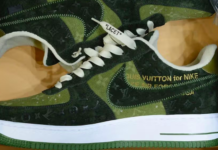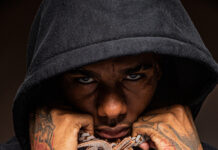Weather forecasters expect Hurricane Sandy’s biggest impact on the midstate will happen Monday and Tuesday. Even if the storm’s downgraded, forecasters say it will be “disruptive and disturbing,” meaning the chance for power outages and flooding are strong.
While taking the following steps won’t necessarily prevent the floodwaters from creeping up to your door, it can help ensure that you and your loved ones are safe and that the damage is minimal.
BEFORE THE STORM
If you haven’t done so yet, try to:
Take a walk around your property and look for any potential problems, especially along your roof, windows, doors and garage doors. Look for and remove tree branches that could harm utility wires or home.
Make sure your gutters and spouts are free of debris.
Bring in or secure outdoor furniture or other items. The Halloween decorations will have to come inside. “They could become a projectile if winds pick up,” said Ruth Miller, Pennsylvania Emergency Management Agency spokeswoman.
Take a quick shopping trip. Skip the milk and bread, though, and instead go for nonperishable items such as canned food, granola bars, dried fruit, nuts, ready-to-eat cereal and snacks, crackers, peanut butter and plenty of ice.
Set your refrigerator to its coldest setting. If the power does go out, the food won’t spoil as quickly.
Make sure your cellphone is fully charged.
Move valuables, including heirlooms and furniture, to the upper floors of your house.
Make sure your sump pump is working. If you don’t have one, and if time allows, install a battery operated back-up in case of a power outage.
Collect important papers such as driver’s licenses, birth certificates, deeds and insurance policies, and place them in a safe, waterproof box. If your garage is power-operated, make sure you include the manufacturer’s instructions.
Keep a list of emergency numbers by the telephone. Î Take inventory of your possessions. “You want to make sure everything is present and accounted [for] if you have to make a call to the insurance company,” said Melissa Fox, deputy press secretary for the Pennsylvania Insurance Department. Fox recommended using the MyHome app, which can capture bar codes and serial numbers of your stuff. If you don’t have a smartphone, you can take pictures with a camera or make a movie with a camcorder.
DURING THE STORM
Stay inside and off the roads
If you absolutely need to be on the roads, don’t attempt to drive through a flood. Remember, there are serious penalties if you try to drive through or around a barricade. “Don’t go there,” Miller said. “Just don’t do it.”
If the authorities tell you to evacuate your home, do it. Don’t be stubborn. Take important documents with you, including your checkbook and credit card information.
IF THE POWER GOES OUT
Report outages to your power company immediately. Don’t assume your neighbors are going to make the call.
Check to see whether your neighbors have lights, and then check your breakers and fuses.
Be sure that ovens, ranges or heaters that might have been on before the outage have been turned off.
Don’t use candles. They can cause a fire. Stick with flashlights.
Unplug appliances (such as computers) that can be damaged when the power is restored.
Keep your refrigerator or freezer closed. Each time you open the door, a significant amount of cold air is lost. An unopened refrigerator will keep food cold safely for about four hours. A packed freezer will keep food safe for 48 hours; you have 24 hours if the freezer is half full. You can use dry or block ice to keep your refrigerator and freezer cold if the power stays out. Fifty pounds of dry ice can maintain an 18-cubic-foot full freezer for two days.
Don’t chance eating spoiled food. Follow the USDA’s mantra: “When in doubt, throw it out.” If a food item has been above 40 degrees for more than an hour or two, throw it away. Never taste food to see if it’s still fresh.
If you have a working generator, keep it outdoors. Keep your generator fuel outside as well.
Keep your doors closed to prevent warm air from escaping.
IF IT FLOODS
If you’re outdoors, move to high ground.
If your basement floods, turn off your pilot light for your basement gas appliances. Turn off the electrical panel box if you can do so safely. Don’t touch electrical switches if they (or you) are wet.
Stay away until the floodwaters have receded. Don’t enter your home or attempt repairs until you’re certain it’s safe.
Contact your insurance agent as soon as possible. Make a note of who you spoke with and mark down the gist of the conversation. “This is the time for the insurance industry to really step up to the plate,” Fox said. “We are hopeful and confident they’ll do just that.”
EMERGENCY KIT
Bottled water (one gallon per person, per day. That includes pets.)
Nonperishable foods and a can opener
Blankets, bedding (or sleeping bag), pillows and toiletries
Baby supplies — diapers, bottles wipes — if needed
First-aid kit, eyeglasses and prescribed medicines
Flashlights with new batteries
Battery-operated radio
Extra batteries
Hand sanitizer
Paper plates and plastic utensils
Cash (ATMs might not work in an emergency)
A list of emergency contacts
Sturdy shoes
WHAT SHOULD BE IN YOUR FIRST-AID KIT
Sterile adhesive bandages
Gauze pads
Rubbing alcohol
Aspirin or other pain reliever
An unbreakable thermometer
Cold pack
Latex gloves
Scissors
Antibiotic ointment
Antibacterial wipes




























